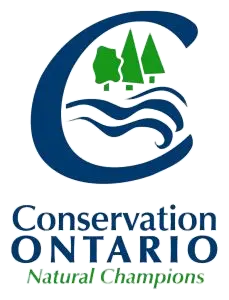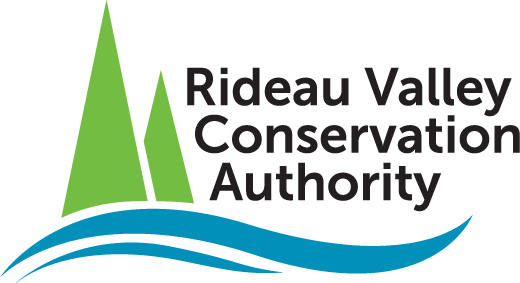March 2008
This Watershed Characterization Report, a snapshot of the drinking water source situation within the Mississippi and Rideau watersheds in Eastern Ontario, is the first product in the process. Parts of this report plus other technical "modules" (vulnerability analysis, threats inventory, water quality and quantity risk assessments) will eventually be brought together to form the Assessment Report detailing the issues around drinking water sources. Finally, a detailed Source Protection Plan for each watershed will be developed with full public participation in which current threats to municipal drinking water will be reduced and future threats will be reduced or eliminated.
Listing of Tables & Figures
Figure 1.1-1 Mississippi-Rideau Source Protection Region
Figure 1.2-1 Ottawa St. Lawrence Lowland Basin
Figure 1.2-2 Ground Surface Topography
Figure 1.2-3 Relative Geological Time Scale
Figure 1.2-4 Generalized Bedrock Geology
Figure 1.2-5 Bedrock Topography
Figure 1.2-6 Regional Geologic Cross – Sections (A, B, C)
Figure 1.2-7 Conceptual Hydrogeological Cross – Section D-D’ (Carp Municipal Well)
Figure 1.2-8 Conceptual Hydrogeological Cross – Section E-E’ (Almonte Municipal Well)
Figure 1.2-9 Conceptual Hydrogeological Cross – Section F-F’ (King’s Park – Munster Municipal Wells)
Figure 1.2-10 Conceptual Hydrogeological Cross – Section G-G’ (Westport Municipal Well)
Figure 1.2-11 Conceptual Hydrogeological Cross – Section H-H’ (Merrickville – Kemptville Municipal Wells)
Figure 1.2-12 Surficial Geology
Figure 1.2-13 Soil Landscapes of Canada – Soil Texture
Figure 1.2-14 OMAF Soils
Figure 1.2-15 Soil Type and Surficial Geology
Figure 1.2-16 Conceptual Hydrogeological Overburden Cross – Section I-I’
Figure 1.2-17 Conceptual Hydrogeological Overburden Cross – Section J-J’
Figure 1.2-18 Overburden Thickness
Figure 1.2-19 Physiographic Regions
Figure 1.2-20 Conceptual Hydrogeological Physiographic Region Cross – Section K-K’
Figure 1.2-21 Conceptual Hydrogeological Physiographic Region Cross – Section L-L’
Figure 1.2-22 Conceptual Hydrogeological Physiographic Region Cross – Section M-M’
Figure 1.2-23 Conceptual Hydrogeological Physiographic Region Cross – Section N-N’
Figure 1.2-24 Land Cover
Figure 1.2-25 Soil Texture and Land Cover
Figure 1.3-1 Surface Water Flow Network
Figure 1.3-2 Major Surface Water Control Structures
Figure 1.3-3 Surface Water Gauges
Figure 1.3-4 Annual Shallow Groundwater Elevations
Figure 1.3-5 Annual Deep Groundwater Elevations
Figure 1.3-6 Potential Groundwater Recharge / Discharge Areas
Figure 1.3-7 Depth to Shallow Water Table
Figure 1.3-8 Conceptual Distribution of Confined / Unconfined Aquifers
Figure 1.3-8a Conceptual Distribution of Confined / Unconfined Aquifers with Overburden Wells
Figure 1.3-8b Conceptual Distribution of Confined / Unconfined Aquifers with Shallow Wells
Figure 1.3-8c Conceptual Distribution of Confined / Unconfined Aquifers with Deep Wells
Figure 1.3-9 Existing Regional Groundwater Studies
Figure 1.3-10 Climate Stations
Figure 1.3-11 Snow Course Stations
Figure 1.4-1 Wetlands
Figure 1.4-2 Woodlands & Riparian Areas
Figure 1.4-3 Ecological Site Districts
Figure 1.4-4 ELC Community Class
Figure 1.4-5 ELC Community Series
Figure 1.5-1 Aquatic Macroinvertibrates
Figure 1.6-1 Population Distribution
Figure 1.6-2 Population Density
Figure 1.6-3 Future Land Use – OP Mapping
Figure 1.6-4 Development Areas
Figure 1.6-5 Brownfields
Figure 1.6-6 Landfill Sites
Figure 1.6-7 Aggregate & Mining Resources
Figure 1.6-8 Municipal Sewage Treatment Systems
Figure 1.6-9 Water Service Areas – Ottawa Region
Figure 1.6-10 Water Service Areas – Rideau Lakes Region
Figure 1.6-11 Private Groundwater Wells
Figure 1.6-12 Wastewater Service Areas – Ottawa Region
Figure 1.6-13 Wastewater Service Areas – Rideau Lakes Region
Figure 1.7-1 Ontario Permit to Take Water Locations
Figure 1.7-2 Large Municipal Drinking Water Systems
Figure 1.7-3 Communal & Designated Facility Well Locations
Figure 1.7-4 Ontario Permit to Take Water – Pie Chart Summaries by Subwatershed




